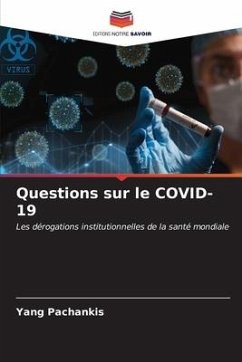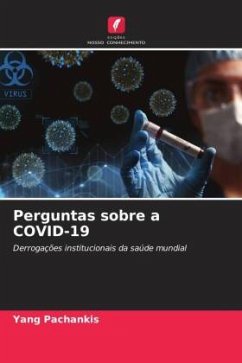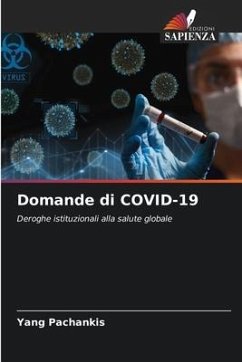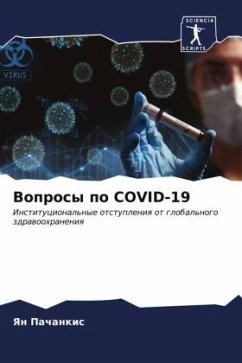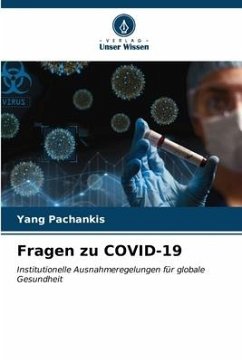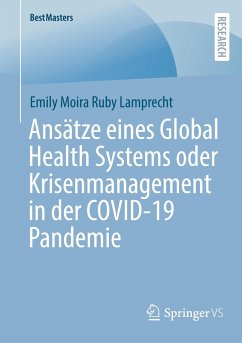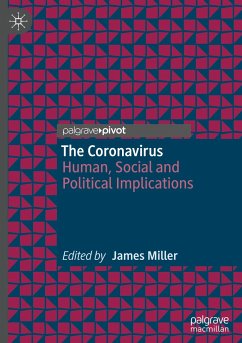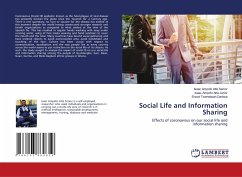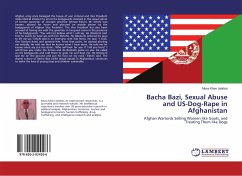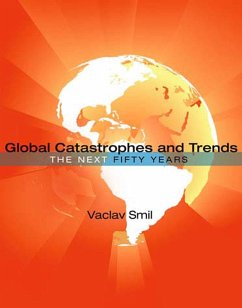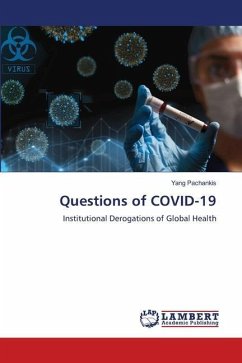
Questions of COVID-19
Institutional Derogations of Global Health
Versandkostenfrei!
Versandfertig in 6-10 Tagen
60,99 €
inkl. MwSt.

PAYBACK Punkte
30 °P sammeln!
Nuclear proliferation is a modern threat to global health. The field research is reorganized during the intensified derogation in the global institutional determinants of health. The spillover effect of the People's Republic of China's public health system is systematically researched and analyzed in the literature as a background to the specific questions of COVID-19. As SARS-CoV-2 incentivized the public in peeling off the information black box devised by the Communist Party of China, the research further questions into its initial strand of SARS appeared in 2002 in Guangzhou. The possible u...
Nuclear proliferation is a modern threat to global health. The field research is reorganized during the intensified derogation in the global institutional determinants of health. The spillover effect of the People's Republic of China's public health system is systematically researched and analyzed in the literature as a background to the specific questions of COVID-19. As SARS-CoV-2 incentivized the public in peeling off the information black box devised by the Communist Party of China, the research further questions into its initial strand of SARS appeared in 2002 in Guangzhou. The possible unnatural origins of the virus with HIV-1 gp41 protein structures are inferred in the research, with its pathogenic features and viral capacities. Apart from treatment strategies developed in the research, the sociostructural origins of vaccine mandates are analyzed. Circulatory system based treatment for vaccination poisoning has been clinically trialed with the author's own case. From the death toll estimations and economic losses, the research concludes that the derogation of global institutional determinants of health costs more than the World Wars and hot wars.



